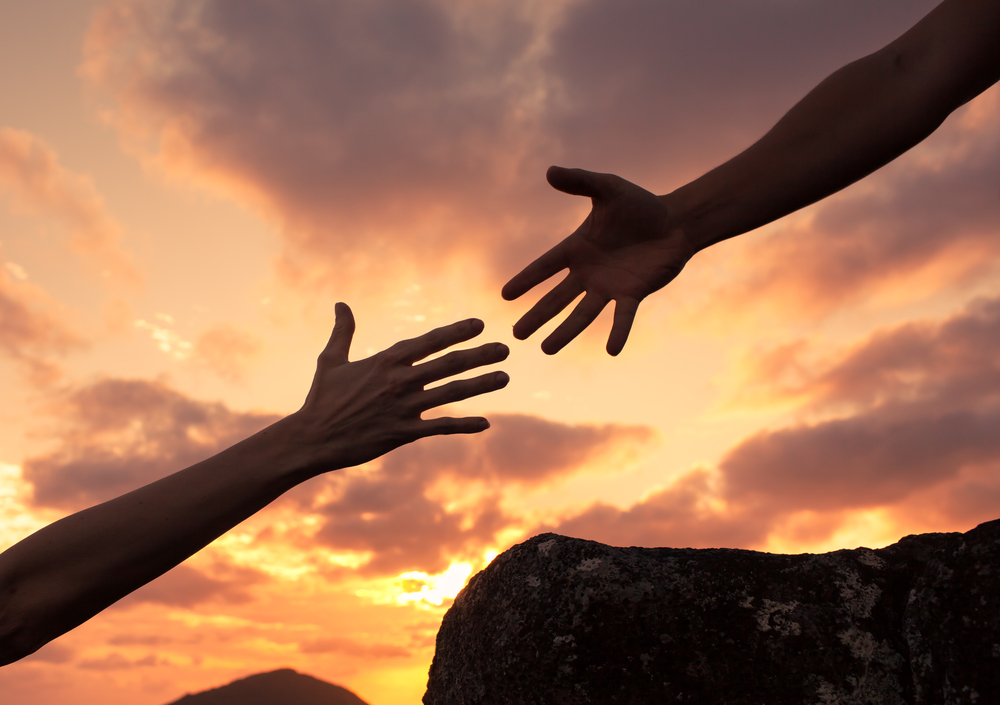Thoughts on privilege
This blog was originally a Facebook post, but as I’ve continued thinking about it, I wanted to expand on it. As I started adapting it for the blog, I originally included a sort of disclaimer about how this is not the kind of thing I normally write about here. And then I decided, no, I’m not going to qualify this. Because those of us who are interested in spirituality cannot call ourselves enlightened if we turn a blind eye to injustice and inequity in the world. We cannot be agents for truth and compassion while simultaneously ignoring the ways that racism continues to have a very real influence in our society and institutions.
It’s likely you’ve heard the term “white privilege” over the past couple of years. It’s also likely you’ve seen people grossly misinterpret it, or maybe you’re unclear yourself about what white privilege really means. It astonishes me how many (white) people continue to argue that white privilege isn’t a real thing because they’ve had a difficult life or they’ve “had to work for everything” they have.
If you think that privilege of any kind means that you just get everything in life handed to you, you don’t really understand what privilege is. And it’s important to understand our privilege, because it can blind us to the very real struggles of people who move through the world differently than we do. (Also, spoiler alert: we’ve ALL had to work for everything we have in life. Unless maybe your name rhymes with “grump.”)
There was a great analogy posted on Quora recently by a man named Omar Ismail that went something like this. Let’s say you’re very tall. That means you can reach things on the top shelf and see over the tops of crowds. Let’s call this your height advantage. It’s not a golden ticket to success, and it doesn’t mean you don’t have other challenges in life. It simply means that you have certain advantages that shorter people don’t, simply because of the body you were born in. It would be silly to expect your height advantage to solve all your problems in life, but it would also be silly to pretend it doesn’t make some things in life easier.
Now let’s say the society you live in and all the systems you rely on have all been built by people who are also tall. Again, you probably don’t even realize this because as you go about your life, things generally work as intended. Again, your personal success is still dependent on the level of effort you put into it. But you generally don’t experience any undue burdens on a daily basis.
But then you notice something. Shorter people start saying that they are at a disadvantage. That things don’t work the same way for them. That it’s harder for them to navigate the system because it wasn’t designed with them in mind. They can’t reach things on the shelves or comfortably drive cars or navigate stairs in public buildings. What would your reaction be? Would you tell them to stop complaining or stop trying to make everything about height? Would you stay that they have brought their difficulties upon themselves and that they just aren’t working hard enough? Probably (hopefully) not. Probably you would look around you, and realize they were right. Likely, you would use your height advantage to help them when you could. And you would probably recognize the need for short people to hold more positions on planning committees and in other areas where they could help make sure that the system works just as well for them as it does for tall people.
Now let’s replace “height advantage” with “white advantage.” Let’s not even use the word “privilege,” because people get hung up on that. Maybe your white advantage means that you can walk into a store and not have security follow you around. Maybe it means that when you write a check at the grocery store, they don’t ask to see two forms of ID. Maybe it means that you can buy an air rifle at Wal-Mart and not have the police called on you while you’re still walking around the store. Maybe you don’t even notice these things, because to you, they’re just normal life.
None of this means that you haven’t had to overcome adversity, or trauma, or poverty, or a dysfunctional childhood. None of this means that you get life handed to you on a silver platter. But it does mean that the color of your skin isn’t one of the things that’s making life harder for you. It does mean that you don’t have to deal with certain challenges that may often be minor but are nonetheless dehumanizing and exhausting (these are called micro-aggressions, and for many people they are a constant part of daily life).
I’ve had challenges in life. I grew up in a single-parent household where money was tight. I started working at the age of 14, slinging popcorn for grumpy moviegoers for $2.15 an hour. I paid for college with a combination of grants, scholarships, work study, and student loans that still have very high balances. I’ve had to work two jobs at times just to pay the bills. None of this means that I still don’t benefit from the color of my skin, probably on a daily basis.
I will NEVER know what it’s like to move through the world as a woman of color, and for me to tell others that they’re wrong when they say they face discriminatory actions and policies that I don’t would be the height of arrogance.
The next time someone mentions white privilege or systemic discrimination and you feel compelled to break out your “I’ve had a hard life too” narrative, stop. Because that’s not what it’s about.
Also, I am not an expert on this stuff. A lot of this is new to me, as I noted in my post about rebranding. I’m a white woman with mostly white friends in a fairly homogeneous neighborhood. All of which is to say, our circumstances don’t have to dictate our level of awareness. I’ve simply made a conscious decision to pay attention. To read books and blogs written by writers of color. To check my feelings of defensiveness. To listen. To do better. To use my influence, however far it reaches, to share the things I have learned and am continuing to learn. We can all do better.
Karen Eisenbraun
Related Posts
Leave a Reply Cancel reply
Categories
- Books (13)
- Nutrition (1)
- Personal growth (9)
- Spirituality (2)
- Writing (2)








